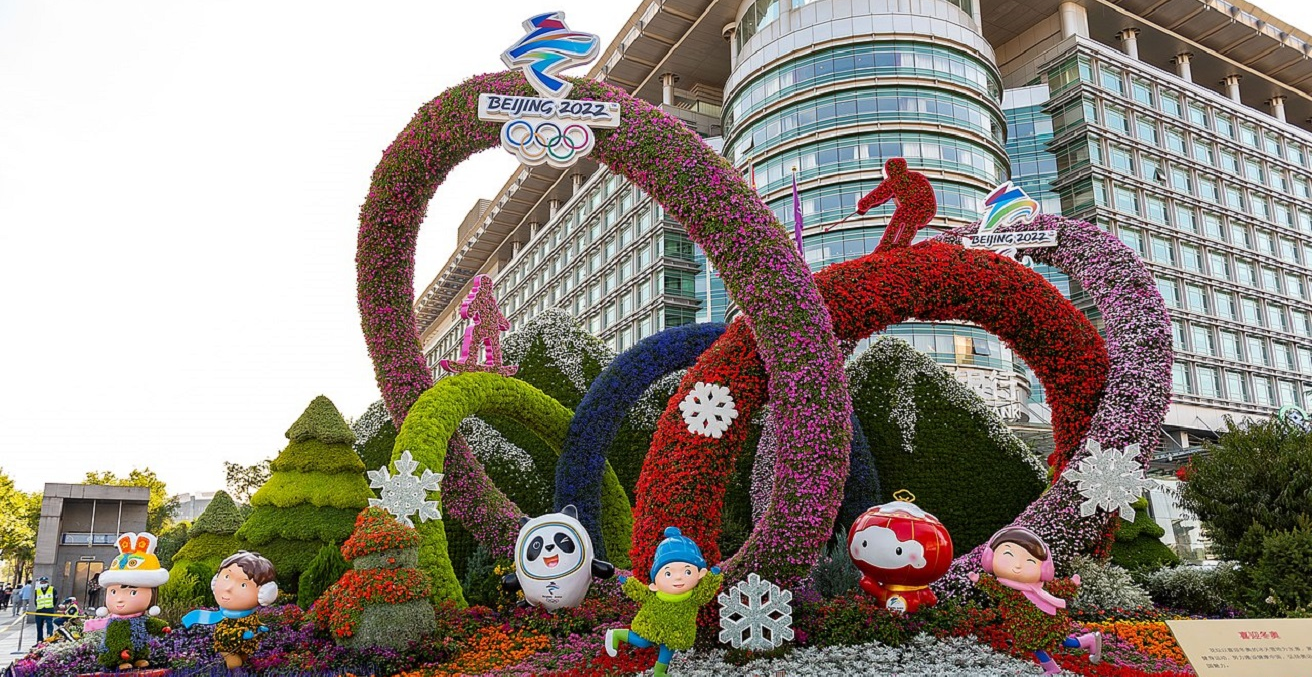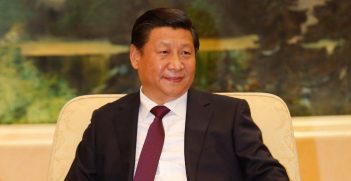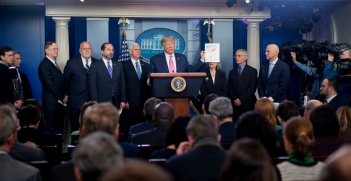Game On: The Logic and Ramifications of the Diplomatic Boycott of the 2022 Beijing Winter Olympics

Despite the comparatively small scale of the Winter Olympic Games, the stakes of the diplomatic boycott process are substantial. The effects will extend beyond diplomacy to corporate strategy, athlete activism, and the Olympic movement itself.
On 6 December, Biden administration announced that the United States would pursue a “diplomatic boycott” of the 2022 Winter Olympics in Beijing. This was preceded by Lithuania’s announcement of a diplomatic boycott, and soon followed by similar announcements from Australia, Canada, the UK, and more obliquely New Zealand.
While there have been prominent sports boycotts in the past, notably of the Summer Olympic Games in Montreal (1976), Moscow (1980), and Los Angeles (1984), this one is different in two key respects. Firstly, it is the only boycott to date of a Winter Olympics. Leaving aside the deep uncertainties arising from the COVID-19 pandemic, this should immediately lead to diminished expectations concerning its impact, since the Winter Games are a much smaller event than their summer counterpart. The 2018 Pyeongchang Winter Olympics drew 2833 athletes from 92 countries, whereas the COVID-19-constrained 2021 Tokyo Summer Olympics had 11,656 participants from 206 countries. The audience is commensurately smaller – confined primarily to relatively rich “Northern” countries plus a handful of rich people from “Southern” countries. Secondly, this is the first sports boycott that has not involved the athletes themselves, but merely the leaders and officials of their home governments – hence the term, “diplomatic boycott.” This combination has led some critics to disparage the boycott as “worse than meaningless.”
Yet the stakes are high. Certainly the suggestion that the boycott’s impact will be “meaningless” is belied by the virulence of China’s official denunciations and threats of “resolute countermeasures.” As scholar Kim Nossal noted many years ago, whatever else they do, sanctions can be a potent and painful form of social punishment – though with varied and sometimes perverse repercussions.
Despite months of heated controversy over the need and the usefulness of a boycott, pitting an array of human rights groups against many national and international sports organisations, both the decision to boycott and the form it took had become virtually inevitable by the time it was announced. From the perspective of the Biden administration, it was almost inconceivable to declare a sports mega-event (SME) host government to be engaging in genocide and crimes against humanity, and then have senior representatives of the administration smile and wave at an event which will inevitably celebrate a stylised portrayal of the identity and achievements of that host. Yet there are also important reasons to pursue a minimalist form of sanctions that will hopefully avoid a sharp deterioration in the increasingly tense Sino-American relationship.
This particular boycott campaign is playing out on three overlapping levels. The first, and most obvious, is the debate over how to respond to a host that is widely understood to have engaged in worsening human rights violations in Xinjiang, Hong Kong, Tibet, and elsewhere. From this perspective, a resolute response is required. Yet even here, the conception of “human rights” on which the boycott campaign rests is sharply contested by the Chinese government and its supporters. They instead tout the country’s achievements in lifting more than 200 million people out of poverty as a triumph of social, economic, and development rights.
The second level is the pragmatic necessity of working with the Chinese government to address some of the most urgent collective action challenges facing the international community today. The most obvious are limiting global warming and other ecological threats and cooperating on global public health challenges, headlined by the ongoing COVID-19 pandemic. There is simply no prospect of successfully addressing these and other collective challenges without the willing participation – indeed, leadership – of China.
The third and deepest level within which boycott dynamics are unfolding is the current process of world order change. While the diplomatic boycott itself is a transient moment linked to a second-tier event, the Beijing Games, like other SMEs, have the capacity to crystallise and intensify more far-reaching processes of order-building and contestation. The host – the Chinese government – has become increasingly forthright in its desire to change the current world order, and the perceived legitimacy of its emerging vision for world order change is wrapped up with its success in hosting such events, which serve as clear signals of its growing international status and achievements. Consequently, efforts to diminish or discredit the event, and its host, are inevitably wading into deeply fraught territory. Conversely, a US boycott that is perceived as a failure and/or a manifestation of US weakness would reinforce the narrative of decline in the American-centred, liberal international order.
What then should we be looking for as the effects of the boycott unfold before, during, and after the Games? The US diplomatic boycott, now supported by its core “anglosphere” allies, is the opening move in a political game with uncertain ramifications. The results will largely depend on developments in four political arenas. The first is how other governments will respond. Given the largely Northern and Western core constituency for the Winter Olympics, this is a boycott for which it should be relatively easy to mobilise sympathy and support. Yet this is far from certain, notably in Europe where many US allies have been treading warily. Moreover, some governments of non-Western countries which are Winter sports powers have already declared that they will not boycott – Korea being a key example. Each potential participant, whipsawed between their reliance and vulnerability towards both China and “the West,” will have to arrive at its own calculus on the risks and benefits of a boycott. The degree of support the boycott enjoys internationally will, in turn, be seen as a test of the “convening power” of the US and China respectively.
A second key arena will be the private sector – more particularly the elite cluster of corporate “Olympic Partners” who have invested heavily in the lustre of the Olympic brand, the host broadcasters who have done so much to enrich the “Olympic movement,” and the International Olympic Committee (IOC) that presides over it. The efforts of these corporate giants to navigate the competing agendas of the Chinese hosts and their boycotting antagonists will significantly diminish the anticipated benefits to their “brands” and further weaken the appeal of this increasingly threadbare movement.
The third arena to watch is that of the athletes themselves, and of “athlete-activists” within it. It is unrealistic to expect numerous prominent expressions of dissent towards the Games’ Chinese hosts, particularly in light of the Olympic Charter’s Article 50 injunction against “any kind of protests or demonstrations” on the field of play, medal podium, or official ceremonies, as well as understandable concerns over athlete safety. Nevertheless, the strong incentives against such protests or demonstrations will greatly amplify even the most subtle expressions of dissent and solidarity with oppressed groups among Olympians.
Finally, there is the arena of the IOC and the Olympic Movement itself. As the prominent Olympic scholar John McAloon has noted, the standing of the IOC has fallen substantially over the recent past, particularly in its erstwhile European heartland. In this context, the IOC faces deep dilemmas about how best to revive the high-minded appeal of “Olympism” on which its success has rested – whether by relying on the organisational and sporting prowess of enthusiastic but authoritarian hosts like China, or by strengthening its association with international human rights norms and principles. In short, the future of the Olympic Games themselves rest, in part, on its success in navigating these cross-pressures, in Beijing and beyond.
David Black is Lester B. Pearson Professor of International Development Studies and Professor of Political Science at Dalhousie University in Canada. He is a specialist in the Politics of International Development who has published widely on Sports Mega-Events (SMEs), Sport for Development (SFD), and Sport and International Relations.
This article is published under a Creative Commons Licence and may be republished with attribution.





